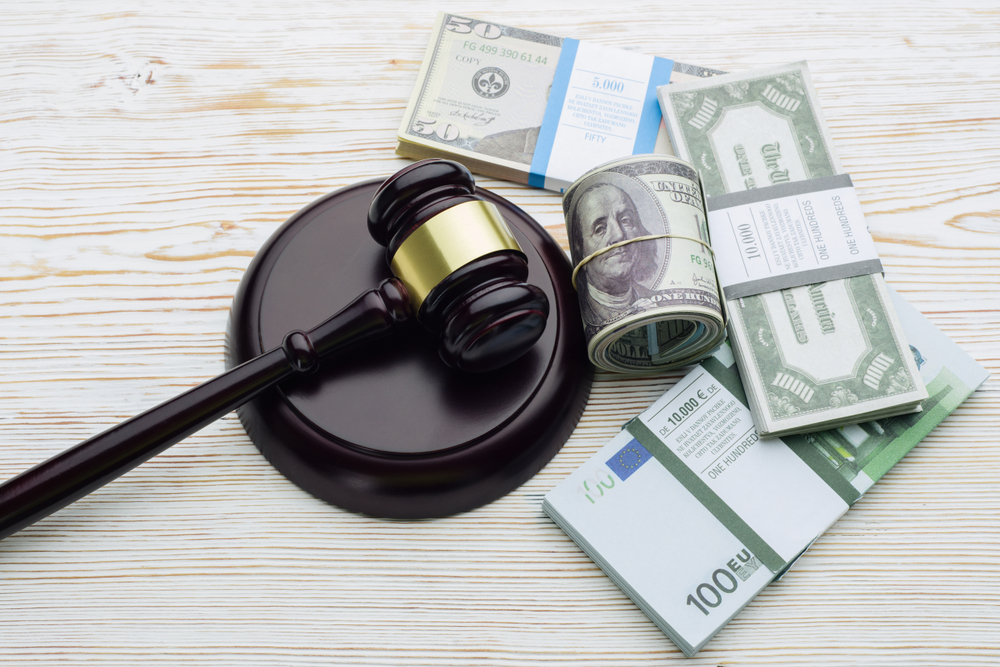
You are making plans for your trial date, and what you plan to do during your time in between posting bail and appearing before a judge is often a crucial time for the accused. However, for them to be granted bail and begin to make the most of their time outside, you have to figure out what you’re going to use to cover that bail. Typically, you will need some form of collateral in place for higher-value bail so you can cover the bail, and as long as you make your court-appointed hearings, you will get that collateral back. However, what kind of possessions qualify as collateral? Are there restrictions per PA bail bond guidelines in Indiana County that regulate what kind of items can be used? Does the type of bail affect what can be considered collateral? The following infographic provides a brief overview of what can be regarded as collateral for your bail bond:
Does the Type Of Bail Bond Affect What I Can Use as Collateral?
The type of bond itself does not affect what kind of possessions you can use as collateral. However, the bail’s price and the bond will subsequently impact what type of possessions you’ll need to provide as collateral. For more severe cases, the court will set your bond at a corresponding price. While you can post a percentage of the bond and get out on your own when you go through a bail bond agency, they cover the entirety of the bond if you do not show up for a trial hearing. If the court rules that you require a monetary bond, you have to cover the bail’s entire cost before you are released from custody. In the event of a monetary bond, you can utilize a bail bond agent to help cover the monetary bond’s cost. However, you will have to provide the corresponding collateral to the bondsman to cover the cost.
What Qualifies as Collateral
Bail bond agents have a bit of leeway as to what they consider collateral. Most agencies will accept high-value items such as homes, car titles, recreational vehicles, jewelry, bank accounts, stocks, and other possessions that can meet the justification of equal value. The bail bondsman will hold your proposed collateral until your trial date. Once you appear for your day in court, the bond contract will be considered complete, and you will receive your collateral back in full. However, if you miss your court date and don’t immediately contact your bail bondsman to renew the bond contract, then you lose the property you used as collateral.
Risks and Responsibilities When Using Possessions as Bail Collateral
Utilizing your possessions as bail collateral is a decision that comes with substantial risks and responsibilities. The most significant risk is — as mentioned above — the potential loss of your assets if you or the defendant fail to meet all the conditions of the bail. This means attending all court dates and complying with any other conditions set by the court. If these conditions aren’t met, your possessions could be seized and sold to cover the bail amount. It’s also your responsibility to provide accurate information about the value of your possessions. This usually requires professional appraisals, which can be time-consuming and costly. Furthermore, the process of reclaiming your assets after the case has been resolved can also be complex and lengthy. It’s vital to consider these factors and seek professional advice before deciding to use your possessions as bail collateral. Understanding the full implications of your decision can help you make an informed choice and minimize potential risks.
Residential Properties: Your Home as Bail Collateral
Using your home as bail collateral is one option that many people frequently consider. It’s important to note that this involves significant risk, as failure to appear in court could potentially lead to the loss of your entire home for GOOD. However, if you’re confident in meeting all bail conditions, it can be a viable option. Generally, the equity in your home — that is, the portion of your home that you truly own as opposed to what you still owe via mortgage—is used as collateral. This means that you can’t pledge more than what you actually own. To use your home as collateral, you’ll typically need to show proof of ownership, an appraisal, and possibly even a current mortgage statement. It’s highly recommended to consult with a legal professional or a bail bondsman to fully understand the implications and the process before making such a significant decision.
Motor Vehicles as Bail Collateral: Cars, Trucks, and More
Another common form of bail collateral is motor vehicles. This includes not just cars but also trucks, motorcycles, boats, or even recreational vehicles (RVs). As with your home, your equity in these vehicles can be used as collateral. Keep in mind, however, that this doesn’t mean the total value of the car but rather the amount that you’ve paid off on it. For instance, if you have a car worth $10,000 but owe $6,000 on a loan, you have $4,000 of equity that could potentially be used as collateral. You’ll need to provide the title of the vehicle, proof of ownership, and, oftentimes, a recent appraisal to establish its current market value. As always, it’s crucial to understand that failure to meet bail conditions could result in losing your vehicle.
Using Valuable Personal Belongings: Jewelry, Artwork, and Collectibles
Valuable personal belongings such as jewelry, artwork, and collectibles can also be used as bail collateral. These items are often easier to liquidate than larger assets like homes or vehicles, making them a more appealing option for some. However, their value can be subjective and might fluctuate based on the current market, rarity, condition, and demand. Therefore, these items must be professionally appraised to determine their fair market value. Once you provide proof of ownership and an appraisal, these items can be used as collateral.
If you or a loved one require the services of a cheap bail bondsman in Westmoreland County, PA, contact Freedom Fast Bail Bonds to schedule an appointment today. We can discuss your situation and help get your case in order!


